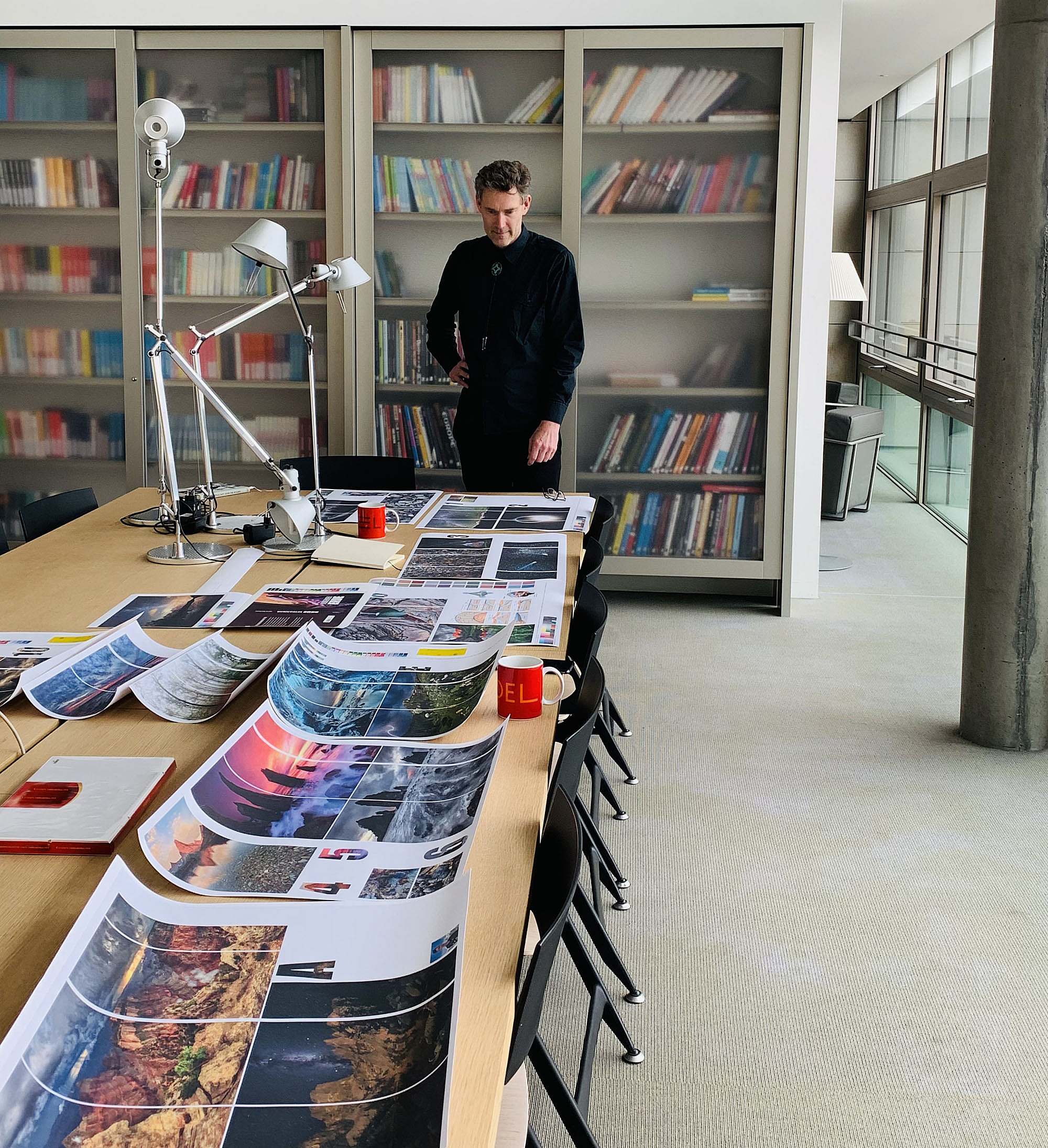
Rocks are true storytellers
EDEL BOOKS How do you convey the fascination for geology to people who have never dealt with it before?
CHRISTIAN KLEPP Rocks are true storytellers. Geology is the science that deciphers these stories and brings them back to life. Every stone we pick up holds stories that make us marvel. That we are able to listen to the stories of these rocks is one of the most fascinating adventures of our time.
EDEL BOOKS In your work, science has merged with landscape photography for many years. Can you still imagine one without the other?
CHRISTIAN KLEPP Of course, geoscience and landscape photography are two very different disciplines, but their connection holds the key to vividly bring geoscience to life. To inspire people for our planet, to make them love and respect Earth, is my dearest wish.
EDEL BOOKS Your research work has taken you to the most remote places on our planet. Which of these places impressed you the most?
CHRISTIAN KLEPP That is not an easy question to answer. Working on the frozen Arctic Ocean near the North Pole during winter at -42°C, with daily contact with hungry polar bears, has had a profound impact on me. It reset my perspective and taught me how small I am, no more important than any grain of sand, and yet I am a part of the big picture. I am also passionate about the rough wilderness of Iceland. I love encountering the elements up close and personal.
EDEL BOOKS What dangers have you encountered during your travels?
CHRISTIAN KLEPP That were already quite a few, and if I were a cat, I would have to slowly pay attention. Among them were rockfalls and avalanches, collapsing glacial ice caves, by far too close lightning strikes, but also eye-to-eye encounters with polar bears, mountain lions and grizzlies. In addition, I barely escaped a semi-successful emergency landing on the ice in the Arctic after a helicopter engine failure at -42°C and nearly crashed in a single-engine Cessna while photographing New Zealand’s volcanoes.
EDEL BOOKS What does an exploding shooting star sound like?
CHRISTIAN KLEPP Quite unbelievable. A short and dull, bloodcurdling bang that bears no resemblance to the rumble of a thunderstorm. It was definitely an unforgettable encounter, and just before the bang there was a flash of light that could have made me read the newspaper. Yet it was a pitch-black night with a new moon. When are we able to hear something from outer space?
EDEL BOOKS You have been actively involved in climate research for more than a quarter of a century. What specifically did you research?
CHRISTIAN KLEPP I have had two research foci in my life and both related to the water cycle over the global oceans. The first ten years I was involved in creating and analyzing a climatology using satellite data called HOAPS. We used data from NASA satellites to explore how precipitation and evaporation are organized and distributed over the oceans. From this, we found that precipitation contained the largest uncertainties. Therefore, I developed a dataset to determine the amount of rain and snow that has fallen onboard research vessels around the world using a specially constructed measuring device. This OceanRAIN dataset has since served as a reference dataset for the satellite climatologies, making them even more accurate. The satellite data in turn serve as a reference for climate modeling, and so we are inching closer step by step to understanding and predicting the Earth’s global weather and climate system.
EDEL BOOKS Do you personally believe that mankind still has a chance to halt the climate change?
CHRISTIAN KLEPP Yes, of course I do. If I had given up believing in it, I wouldn’t have needed to write this book. But that doesn’t mean this is going to be easy. We all know that there are no simple answers to complex questions. Yes, we must first get away from CO2 emissions, and we must not stress ecosystems beyond their capacity to recover at the same time. So far, the answer is simple, but the way to get there is already highly complex again. And this is especially true in a time where global problems are becoming more and more pressing. However, it should also not be concealed that it is already 5 to 12 with regard to climate change and the exploitation of ecosystems, but not minutes, rather seconds. The time to act is precisely now, otherwise it really is too late!
EDEL BOOKS Which take-home message would you like to give to the readers of your book?
CHRISTIAN KLEPP Please notice how unique our planet is! I strongly disapprove space tourism, but there is a good reason for returning astronauts and cosmonauts to become passionate ambassadors of Earth. However, we can gain this perspective even without a trip to space and a look back at Earth. We just have to pay attention and understand how everything is interconnected and how fragile and finely orchestrated the Earth system is. This is exactly what I describe in my book. The biggest problem with our perturbation of the Earth system isn’t even that it’s too much. It is the much too fast. The pace at which we change the climate and dig for resources does not allow the ecosystems and their inhabitants to adapt to the changes. The consequence is extinction. Because intact ecosystems guarantee our own well-being, we are digging our own graves. Each and every one of us is asked to question our daily actions. Every daily act, no matter how tiny, becomes relevant with nearly eight billion people. We are all decision-makers at all times. The inner insight to love our planet and treat it with respect is the change of perspective we need so that climate protection becomes something taken for granted in everyday life.
